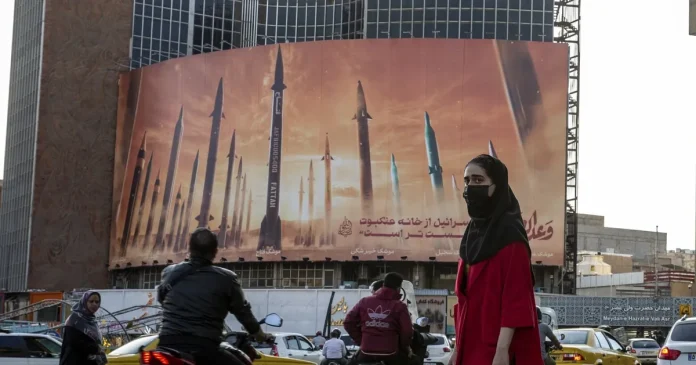Israel was mere moments away from an airstrike on April 1 that killed several senior Iranian commanders at Iran’s embassy complex in Syria before it told the United States what was about to happen.
Israel’s closest ally had just been caught off guard. Publicly, U.S. officials voiced support for Israel, but privately, they expressed anger that it would take such aggressive action against Iran without consulting Washington.
The Israelis had badly miscalculated, thinking that Iran would not react strongly, according to multiple U.S. officials — a view shared by a senior Israeli official. On Saturday, Iran launched a retaliatory barrage of more than 300 drones and missiles at Israel — an unexpectedly large-scale response, if one that did minimal damage.
The events made clear that the unwritten rules of engagement in the long-simmering conflict between Israel and Iran have changed drastically in recent months, raising fears of an all-out war.
Even after it became clear that Iran would retaliate, U.S. and Israeli officials initially thought the scale of the response would be fairly limited, before scrambling to revise their assessment again and again. Now the focus is on what Israel will do next — and how Iran might respond.
“We are in a situation where basically everybody can claim victory,” said Ali Vaez, the Iran director of the International Crisis Group. “Iran can say that it took revenge, Israel can say it defeated the Iranian attack, and the United States can say it successfully deterred Iran and defended Israel.”
But Vaez said: “If we get into another round of tit for tat, it can easily spiral out of control.”
This account of these tense weeks is gleaned from interviews with U.S. officials, as well as officials from Israel, Iran and other Middle Eastern states. All of them spoke on the condition of anonymity to discuss sensitive matters.
Planning for the Israeli strike in Syria started two months earlier, two Israeli officials said. The target was Mohammad Reza Zahedi, the commander for Syria and Lebanon of Iran’s elite Quds Force, a branch of the Revolutionary Guard.
About a week beforehand, on March 22, Israel’s war Cabinet approved the operation, according to internal Israeli defense records that were viewed by The New York Times.
Those records also outlined the range of responses from Iran that the Israeli government expected, among them small-scale attacks by proxies. None of the assessments predicted the ferocity of the Iranian response that actually occurred.
From the day of the strike, Iran vowed retaliation, both publicly and through diplomatic channels. But it also sent messages privately that it did not want outright war with Israel — and even less so with the United States.
U.S. officials found themselves in an odd position: They had been kept in the dark about an important action by a close ally, Israel, even as Iran, a longtime adversary, telegraphed its intentions well in advance.
When it came this past Saturday night, Iran’s show of force was significant, but Israel and its allies intercepted nearly all of the missiles and drones. The few that reached their targets had little effect. Iranian officials say the attack was designed to inflict limited damage.
U.S. officials have been telling Israeli leaders to see their successful defense as a victory, suggesting that little or no further reply is needed. But despite international calls for de-escalation, Israeli officials argue that Iran’s attack requires yet another response.
“The question now is how does Israel respond in a way to prevent Iran from rewriting the rules of the game without provoking a new cycle of state-on-state violence,” said Dana Stroul of the Washington Institute for Near East Policy.
In fact, Israeli leaders came close to ordering widespread strikes in Iran on the night Iran attacked, according to Israeli officials.
Israeli officials say the Oct. 7 attack by Hamas changed the ground rules of regional conflict. To its enemies, it was Israel’s subsequent invasion of the Gaza Strip that did that.
By March, the relationship between the Biden administration and Israel had grown increasingly fraught. Then came the Israeli strike in Damascus, which killed seven Iranian officers, including Zahedi.













